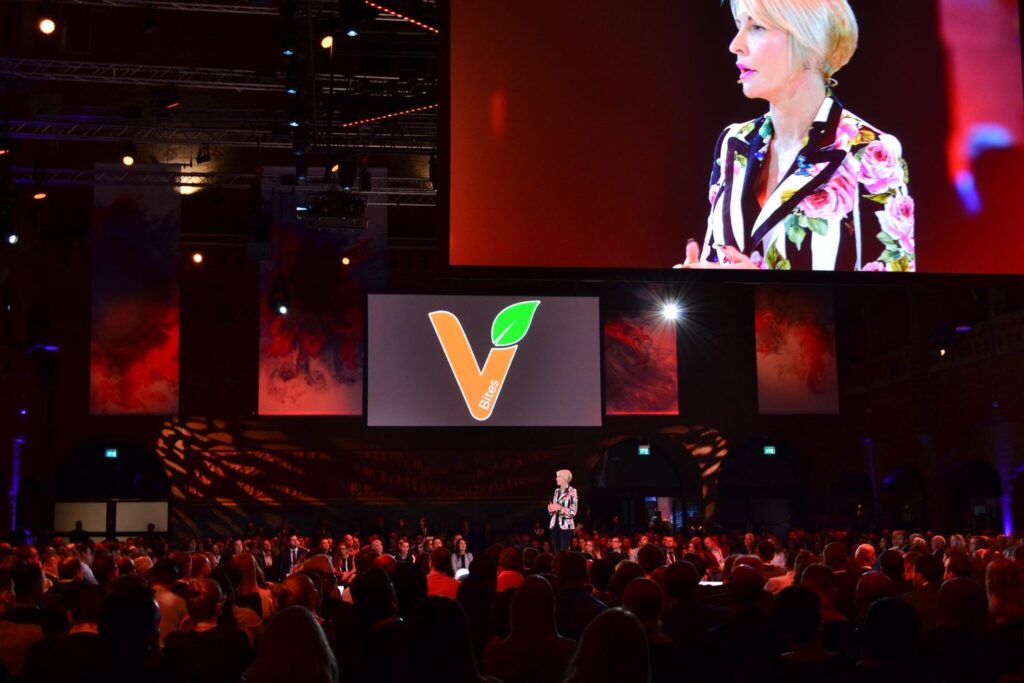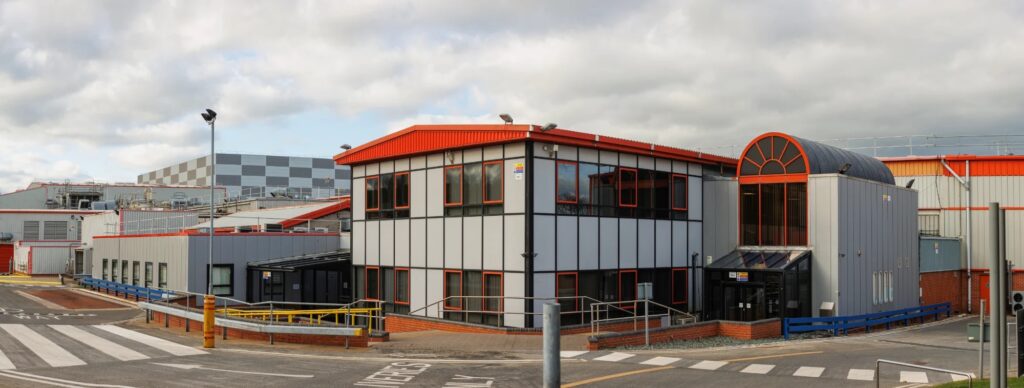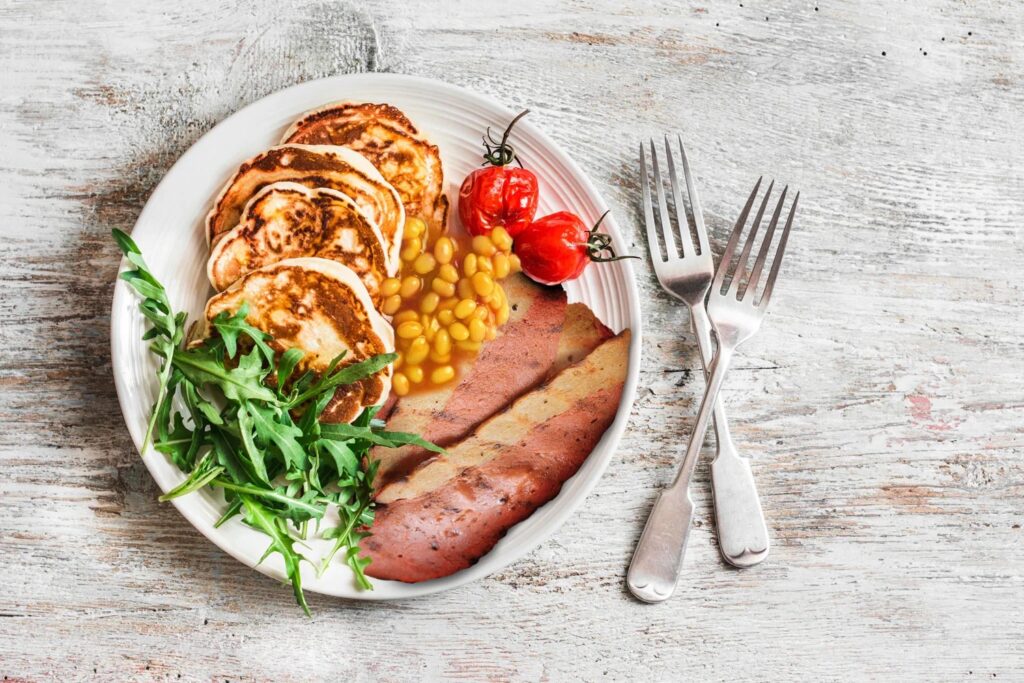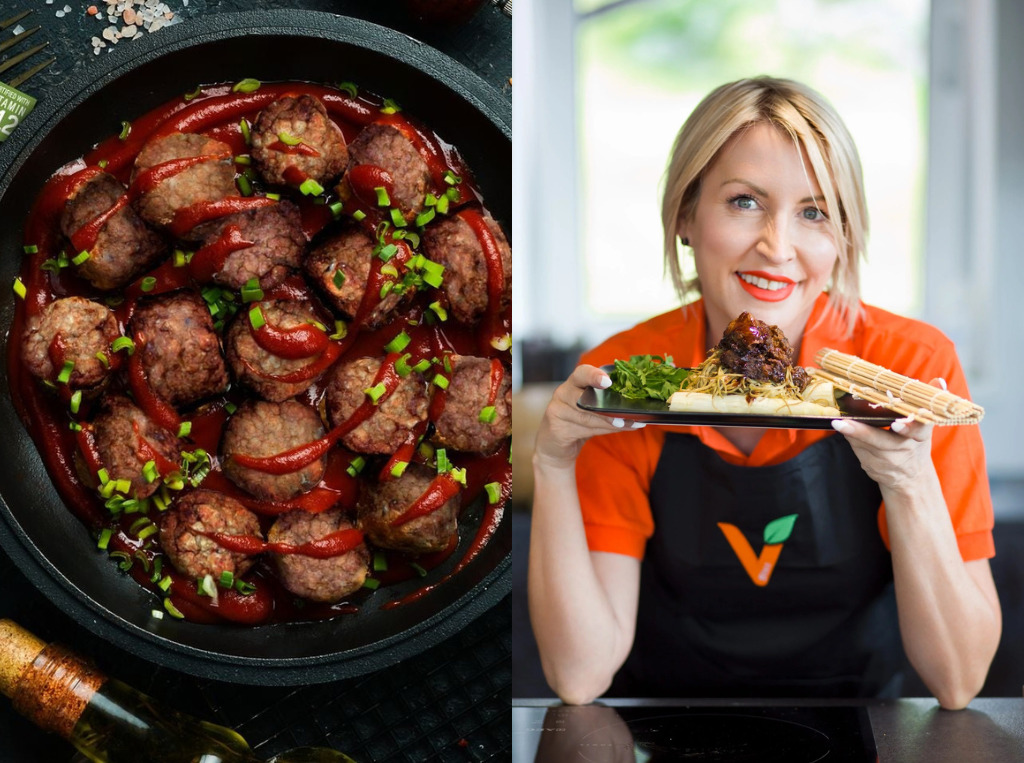Misinformation, Corporate Greed & Rising Costs: How Heather Mills’ Alt-Meat Brand VBites Fell Into Administration After 30 Years
8 Mins Read
British vegan entrepreneur Heather Mills has announced that her legacy plant-based meat brand VBites is entering administration this week, after failing to secure funding amid rising costs. The 30-year-old company’s collapse comes amid a rough time for alt-meat, which Mills says is suffering from misinformation and corporate greed.
Spanning 30 years, 140+ products and 28 countries, British plant-based meat brand VBites is entering administration, owner Heather Mills announced in a lengthy statement on her website.
The entrepreneur said the news was “extremely distressing” for her employees and herself, having personally invested “tens of millions of pounds” and “offering every solution” she feasibly could to keep going. However, the efforts had been “thwarted by a demand that I stepped away from day-to-day management” to secure essential investment.
She added that this was exacerbated by a combination of “corporate greed and poor management”, increasing ingredient and energy costs, the cost-of-living crisis, and the “current state of the manufacturing economy” in the UK. Mills, a former model and previous wife of Paul McCartney, also ascribed the collapse to misinformation and gaslighting initiatives by the meat and dairy industry, as well as celebrities who backed these campaigns.
‘Blood, sweat and tears’

Launched in 1993, VBites originated as Redwood Wholefood until 2009, when it was bought by Mills. The name was changed to VBites to match the moniker of the entrepreneur’s restaurant in East Sussex. It has an extensive product range – including plant-based sausages, burgers, fish fingers and cheeses – and used to have a supplier deal with McDonald’s for its meat-free range.
Mills was introduced to veganism as part of an alternate therapy to traditional medicine in the aftermath of a 1993 accident, which led to her losing part of her left leg. She has previously stated her aim to turn northeast England into the “Silicon Valley of plant-based foods”, and is the owner of an omega-3 algal oil brand and a vegan makeup company. Additionally, she is a patron of the British vegan charity Viva!.
“Anyone that knows me well, knows the blood, sweat and tears that my team and I have put into the business, for the sole purpose of furthering the plant-based movement, of which we have been the pioneers for over 30 years and effecting a major shift in global human health, the preservation of the environment and the protection of animal welfare,” wrote Mills.
She added that her mission has always involved being “a facilitator of the plant-based transition” and advancing the “growth of our market” to show consumers that eating more sustainably, healthily and ethically can be delicious and possible. “That mission doesn’t change. I will continue to strive for this.”
She sold a 25% stake in VBites to Germany’s Pfeifer & Langen in 2021, months before her company announced a 25% profit for the 2021-22 financial year despite post-pandemic pressure. But things have come to a head since then. Mills stepped down from the company’s board earlier this year, which saw an overhaul with five new directors (one has since left).
‘Corporate greed’ forced Mills out

This could be what Mills was alluding to as part of her reasoning for the brand’s fall into administration. “It is unsurprising and inevitable that where profits are to be made, amorphous corporate entities will follow and unfortunately their practices too often undermine the entrepreneurial spirit, flexibility and agility of movement that saw plant-based entrepreneurs have so much success,” she explained.
“There is too often a tendency to treat their investments as short-term experiments and opportunistic flights of fancy, embalm them in restrictive governance and then either walk away or enforce a takeover when the market hits a bump.”
She compared her situation to the one at US vegan cheesemaker Miyoko’s Creamery, whose namesake founder Miyoko Schinner was ousted from the company last year, in a long-drawn saga that ended in lawsuits and bitter statements. The two parties settled earlier this year, with the business naming a new CEO and Schinner focusing on a new cookbook and pondering a potential restaurant.
“Sadly, I have many close friends and business owners in the sector that have had similar experiences and have either been forced out of their companies or gone under in the last few years,” said Mills. “There is a balance – we need capital to grow, but it needs to be well-intended capital and it needs to be married with strategic vision and belief in a brighter future.”
Plant-based unity key against meat and dairy misinformation

The other factor that Mills said VBites fell victim to was the “galvanised” misinformation campaigns from the meat and dairy industry, which she described as “well-funded gaslighting initiatives that detract from the facts and sow the seeds of doubt in consumers who deserve to know the truth”.
In the US, for example, alt-meat companies like Beyond Meat and Impossible Foods have been the target of coordinated attacks for years, challenging the overprocessed nature and long ingredient lists of their products, and bringing into question how that affects human health. In fact, plant-based brands have been looking to form a coalition in the style of marketing groups behind ads like Got Milk? – something Mills namechecked too – which Impossible CEO Peter McGuinness has called “a collective opportunity to extol the benefits of the category” (though this effort is facing headwinds).
These misinformation campaigns by the meat and dairy lobby have been successful in deterring consumers – at least if you’ll believe social media, where almost a quarter of analysed posts in a study labelled meat and dairy alternatives as ultra-processed “Frankenfood” that lack nutrition and cause serious diseases and “turbo cancers”. These posts attacked everything from long ingredient lists and overprocessing to nutritional aspects, diseases and health effects.
“The plant-based industry needs to take a lead from the dairy industry in unifying its voice, but as a force for good and promotion of the facts – as opposed to a litany of lies and misinformation,” said Mills, criticising certain celebrities who have backed the meat and dairy industries but “should take their responsibilities as influencers much more seriously”. Actresses Aubrey Plaza and Emma Roberts have both come under fire for featuring in dairy commercials.
The 55-year-old added: “We also need to work harder to demonstrate the long-term profitability of plant-based farming and manufacturing to the meat and dairy industries. If you want to enter the house, you need the keys – and working with the incumbent players in our food sector is the only way to effect meaningful and sustainable change.”
Factories, employee layoffs and immediate future

Mills owns multiple factories as part of her plant-based empire, including an ex-Coty plant near Newcastle, which offers storage and office spaces to vegan manufacturers, and the former plant-based meat production premises of Boston, Lincolnshire-based Plant & Bean, which itself fell into administration in June.
VBites, meanwhile, operates two sites in northeast England: in Peterlee, County Durham, and Corby, Northamptonshire. Mills remarked on the challenges the British manufacturing industry has faced since its exit from the EU in 2020: “Brexit has been an utter disaster for the supply and maintenance of the sector, and the government doubtless has a lot to answer for. So do the opportunistic utility companies and their broker networks, [which] through an array of nefarious practices now under investigation, have hiked up prices so that companies simply cannot afford to operate.”
She called on legislators to “clamp down on this form of malpractice”, “allocate funding, resources and support in the right places to promote manufacturing”, and “funnel subsidies towards industries such as ours” instead of planet- and health-harming conglomerates.
VBites has appointed Interpath Advisory as administrators, which will continue to trade from the Peterlee site while a buyer is found. A total of 60 members of staff across the two sites had been retained, but 24 from across the business have been let go.
“Our immediate priority is to provide support and assistance to those employees impacted by redundancy, as well as seeking a buyer for the business and its assets. We would encourage any interested parties to make contact with us at the earliest opportunity,” said James Clark, the joint administrator and managing director at Interpath.
The UK’s struggling plant-based sector

VBites’s collapse comes amid a volatile period for the plant-based market in the UK (reflected by a wider trend globally). As investors have tightened their pockets around food tech and consumers have become more cautious in a cost-of-living crisis, vegan brands have been hit hard.
Apart from Plant & Bean, fellow British company Meatless Farm came close to administration before being rescued by vegan chicken maker VFC. Many have pulled their products from UK retail shelves, Coca-Cola-owned Innocent Drinks discontinued some of its smoothies, Heck cut its meatless range from 10 products to just two, Nestlé dropped its Garden Gourmet and Wunda brands, and Oatly withdrew its entire ice cream range. Meanwhile, industry giant Quorn announced a loss of £15.3M in its yearly accounts.
This has extended to foodservice, too. In 2022, sandwich chain Pret A Manger announced it was closing down most of its Veggie Pret stores, just as several independent eateries in north England did, including V Rev, JJ’s Vish and Chips, Zad’s (all Manchester), Frost Burgers (Liverpool) and Donner Summer (Sheffield).
This year too, fast-casual chain Clean Kitchen Club permanently shut its Notting Hill location in London in February, for example, while Flower Burger exited the UK market in September and Edinburgh’s Harmonium closed in April. And last month, popular vegan restaurant V Or V in Sheffield announced it was closing its doors, and Lewis Hamilton-backed fast-food chain Neat Burger said it will close four of its UK stores by the end of the year.
The UK is Europe’s second-largest vegan market – with retail sales for meat and dairy alternatives reaching £964M in 2022. But the market has stagnated and total investment in plant protein R&D has been overtaken by cultivated meat in the last decade. According to industry think tank the Good Food Institute Europe, UK plant-based sales fell by 3% between 2021-22, with alt-meat purchases sliding by 8%.
“VBites is one of the UK’s leading manufacturers of vegan food products, but unfortunately, and in common with many other companies across the food manufacturing sector, had seen trading impacted by rising commodity and energy prices,” said Clark.
Thanking her staff, Mills concluded her statement on a slightly more optimistic note: “I am hopeful that as a unified force we can turn things around – and hopefully before it is too late.”




